In Florida, people (residents or visitors) must have a Florida fishing license to engage in fishing activities. That applies to someone who catches, releases, and even assists in fishing activities, such as baiting hooks, setting decoys, or calling birds. Different types of licenses in Florida include recreational licenses (freshwater and saltwater licenses), resident licenses, and non-resident licenses.
When fishing, you must carry necessary fishing gear like electric reels, rods, fish finders, etc, and a portable power station to power them. Jackery Portable Power Stations are one of the most reliable portable solutions that can power most of your fishing appliances on the go.
Key Takeaways
- Whether you’re a Florida resident or non-resident and fish in freshwater or saltwater, you must have a license.
- Different types of fishing licenses in Florida include recreational licenses, resident licenses, non-resident licenses, disabled person licenses, and 65+ licenses.
- The costs of fishing licenses in Florida vary from $17-$50, depending on the angling type you engage in and whether you’re a resident or not.
- Fishing licenses are exempted for certain groups of people, for example, if you’re permanently disabled, aged more than 65 or less than 16, and others.
Do I Need A Fishing License in Florida
In Florida, you need a license to fish, whether actively fishing and hunting or passively participating, i.e., baiting hooks, setting decoys, or calling birds. Florida Fish and Wildlife Conservation Commission mentions the following needs for a fishing license in Florida:
- Non-residents who are 16 years or older
- Out-of-state hunting and fishing licenses aren’t valid in Florida
- A saltwater license is required if you attempt to catch any non-native marine organisms like lobsters, crabs, and others.
- Non-residents who use the beach for recreational purposes
- People listed on the National Saltwater Angler Registry need a license unless they fall into exempted categories.
As per Florida Statute 379.353, many individuals are exempted from recreational, saltwater, or freshwater fishing. These include youths below 16 years, residents who are 65 years and older, certified as disabled, members of the armed forces, and fish on their private land.

Getting a fishing permit or a license in Florida is quick and easy. If you want to get one, here’s where you can get it:
- Online at GoOutdoorsFlorida.com
- By calling toll-free 888-HUNT-FLORIDA (888-486-8356) or 888-FISH-FLORIDA (888-347-4356)
- In-person from the tax collector’s office or license agent
- Through the Fish | Hunt FL App on Android and Apple devices
GoOutdoors Florida is an authorized provider of fishing and hunting licenses in Florida. And with the Fish|Hunt FL App installed, obtaining and renewing a license is as easy as ever. The app offers much more information about fishing and hunting regulations, harvest reporting, sunrise/sunset times, feeding times, etc.
Types of Fishing Licenses in Florida
For any type of fishing, there are different types of licenses in Florida, depending on the kind of activities you participate in:
Recreational Licenses
To fish in Florida, residents and non-residents need a recreational license unless they fall under any exemption category. Two types of recreational licenses are available depending on the type of fishing (freshwater or saltwater). Here are the key details:
- Freshwater License
A freshwater license is required to attempt or catch a native or non-native fish from freshwater. Residents can choose to get an annual ($17.00) or five-year ($79.00) license, while non-residents can opt for a 3-day ($17.00), 7-day ($30.00), or annual ($47.00) license.
- Saltwater License
A saltwater license is needed to catch or attempt to catch native or non-native saltwater organisms or marine plants. Similar to a freshwater license, residents can opt for annual ($17.00) or five-year ($79.00) licenses, while there’s a 3-day ($17.00), 7-day ($30.00), or annual ($47.00) license option available for non-residents.
In addition, residents and non-residents can opt for a reduced-cost combined freshwater and saltwater fishing license.
Resident License
To count as a resident of Florida and get a fishing license, you must have declared the state your only state of residence or served as a US Armed Forces member stationed in Florida. As mentioned above, you can opt for a separate saltwater and freshwater license or a combined license for a specific period and renew it when it expires.
Non-Resident License
Non-residents over the age of 16, including seniors over 65, military veterans, and individuals with disabilities, must have a standard fishing license. Anyone can avail of a license provided they have a driver’s license and a social security number. Similar to residents, you can opt for a separate freshwater and saltwater license or a combined license.
You can purchase the Florida non-resident fishing license online, in person from a licensed agent or a tax collector’s office, or through the Fish|Hunt FL App. The licenses are also obtainable from retail locations like sporting goods shops, tackle and bait shops, gun shops, and department stores.
Senior Citizens (65+) License
Residents of Florida above the age of 65 years don’t need to purchase any recreational fishing license for freshwater or saltwater. Instead, they can use a Florida ID card or driving license to prove their residency and age. They also can get a free Resident 65+ Hunt/Fish Certificate at the county tax collector’s office or online at GoOutdoorsFlorida.com.
However, the rule doesn’t apply to non-residents over 65, who need a standard Florida fishing license.
Disabled Person License
Florida residents who are disabled can get a free or reduced-cost fishing license through the Florida Fish and Wildlife Conservation Commission (FWC). It’s available for those who are totally or permanently disabled.
To get the license, applicants must bring proof of residency and disability documentation, such as a certificate issued by the Social Security Administration, U.S. Veterans Administration, or armed services. The application can be made at a local tax collector’s office, online, or from the app.
Costs of Fishing Licenses in Florida
The fishing license cost in Florida varies by type and your residency status. Here’s a table that details everything about it:
|
Florida Fishing License |
Cost |
|
Resident Annual Freshwater Fishing |
$17.00 |
|
Resident Annual Saltwater Fishing |
$17.00 |
|
Resident Annual Fresh & Saltwater Fishing |
$32.50 |
|
Non-resident 3-day Freshwater Fishing |
$17.00 |
|
Non-resident 3-day Saltwater Fishing |
$17.00 |
|
Non-resident Annual Freshwater Fishing |
$47.00 |
|
Non-resident Annual Saltwater Fishing |
$47.00 |
|
Snook permit |
$10.00 |
|
Lobster permit |
$5.00 |
|
Resident 5 yr. Snook permit |
$50.00 |
|
Resident 5 yr. Lobster permit |
$25.00 |
|
Resident Saltwater Shoreline |
$0.00 |
The license fees residents and non-residents pay for fishing go entirely to the Florida Fish and Wildlife Conservation Commission, except the processing fees. They invest the generated amount to sustain the state's fish and wildlife resources.
The Division of Freshwater Fisheries Management often arranges special bonuses and incentives to encourage anglers to purchase licenses and support conservation. Although people under 16 or above 65 years don’t need a license, they can opt for one to contribute funds to support fish restoration.
Now, there are multiple ways to get a fishing license in Florida, so you can select one that seems suitable. To start, you can visit GoOutdoorsFlorida.com and apply for a license by accessing the “purchase recreational licenses & permits” tab and following the prompts. Or if you want to get one in person, there are tax collector’s offices, Walmart, and registered bait and tackle shops. You can also contact them over at +1 (888) 347-4356 (FISH-FLORIDA).
That said, the most cost-effective way of obtaining a fishing license is by visiting your local tax collector’s office. While Walmart and registered bait shops might seem convenient, you might have to pay a small additional fee at these places for a license.
Florida Fishing License Exemptions
Florida residents are, however, exempted from fishing licensing requirements under certain circumstances, including:
- Children below the age of 16 years.
- Adults above 65 years of age (must have residency proof such as a driver's license or ID card).
- Residents who are permanently disabled and have a Florida Resident Disabled Person's Hunting and Fishing License.
- Active military veterans stationed in Florida or on a leave of 30 days or more.
- Residents owning a pond of 20 acres or more or paying a license fee of $3 per surface area.
- Individuals who are just observing or filming and aren’t fishing or assisting (like hooking a bait, setting decoys, etc) in any way.
- Disabled armed forces veterans and their immediate families participate in a permitted outdoor recreational event, and the commission has issued a Disabled/Military Veteran Event License Exemption Permit to the event organizer.
For freshwater fishing, individuals who fall into the following categories are exempted from a fishing license:
- Fishing in a pond located on your property.
- Fishing during a free freshwater fishing day or in Lake Seminole or St. Mary's River and have a valid Georgia fishing license
- Those who have obtained a Resident Freshwater Commercial Fishing License.
- Residents who are fishing for non-commercial purposes and aren’t equipped with a fishing-line-retrieval mechanism.
Other than that, there are some exceptions for licensing in saltwater fishing:
- Residents who are accepted as permanently or totally disabled by the Agency for Persons with Disabilities. You might need proof of residency and disability to obtain the certification.
- Those fishing in saltwater from a for-hire vessel, such as a charter, guide, boat, or party, with a valid charter license.
- Those fishing on a free saltwater fishing day.
- Those with a valid saltwater pier license and are fishing from the pier.
- Individuals with a valid FWC charter captain license or saltwater products license.
- Residents who are fishing using poles or lines, live bait, and are fishing for non-commercial purposes.
Similar to a resident license, there are some exemptions to a non-resident license, including:
- Children below 16 years of age.
- Individuals fishing from a vessel or a for-hire vessel with a valid saltwater fishing license.
- Fishing during free saltwater or freshwater fishing day.
- Armed forces that aren’t stationed in Florida but are on leave there for 30 days or more.
How to Replace A Florida Fishing License
Your fishing license expires between three days and five years, depending on the type of license you’re issued with. The expiration date is mentioned on all the licenses.
With its expiry, you can no longer get to fish until you renew it for a fixed period. For that, visit GoOutdoorsFlorida.com or visit a tax collector’s office or a licensed agent to renew and reprint to continue with your endeavors. You can also access the FWC’s Fish|Hunt FL App on Android and Apple to renew and download it with a few clicks.
Even if your license or permit is lost or stolen, you can reprint it anytime from the aforementioned platforms for a minimal $2.50 fee. This applies to any license, whether annual, five-year, or lifetime.
Florida Fishing Tips
Florida is probably the best location to fish on the planet, which is why it’s known as the “Fishing capital of the world.” With a great location, plenty of fish species, and a beautiful location paired with 1,350 miles of coastline, you’re at the fishing epicenter of the US. But what separates seasoned anglers and beginners is their strategies and techniques.
Below are a few tips to make the most of your fishing trips in Florida:
When To Go Fishing In Florida
To start, determine the right season to fish in Florida. Opposed to other states, things are much simpler here. Irrespective of the season, throw the lure into the water, and something will bite. Whether you’re at the warm waters of the Gulf in the west or East Atlantic Coast of Florida, hooking won’t be a problem.
The best time, however, is the summer and spring seasons. It’s when offshore and inshore fishes come out to play, and the bite rate goes out of the charts. However, the catch rate of species like Sailfish, Wahoo, and Cobia rapidly increases during winter. So, deciding when to fish in Florida depends on what to fish. If you can’t, several fishing forums in Florida can help you find underrated locations, learn techniques, determine the best time to fish, and other necessary information.
What Fish Species
With some of the best fish species in Florida, angling is gratifying there. Although Sailfish and Largemouth Bass are the official fishes of Florida, there are hundreds of more you can look into. Some popular fish species include catfish, crappie, king mackerel, tarpon, grouper, snapper, mahi mahi, and amberjack. All of these can be baited in at different spots, so make your plans accordingly.
Where To Go Fishing
Ask an angler, and each will name a different place to be, as there’s something for everyone in this state. Some popular fishing spots here are Florida Keys, Destin, Tampa Bay, Panama City Beach, Miami, Naples, etc.
Each spot is a house to plenty of fish species. For example, Destin is home to Big Grouper, Snapper, Wahoo, Mahi Mahi, Tuna, Billfish, and Amberjack. At the same time, you can bait in Spanish Mackerel, Redfish, Flounder, Cobia, Mangrove Snapper, and others at Panama City Beach. So, thoroughly research the places, determine your target, and get there accordingly.
What To Take For A Fishing
Although Florida is a fishing heaven, baiting and getting a big catch isn’t for everyone. Fishing is more complex than anyone can imagine. You must carry the right gear and use it properly to make the most of your fishing trips. Here’s a list of gear you must carry:
- Rod & Reel Combo
- Swivels
- Fishing Weights
- Hard Bait
- Fishing line
- Needle nose pliers
- In-line spinner lures
- Fish finder
- Bobbers
- Crimpers
- Tackle Box
Other than these, you can carry a Jackery Portable Power Station to power your electrical fishing equipment like fishing reel, fishing winch, and others when in mid-water and no power source is accessible.
Fishing Techniques And Tackles
Not only gears, you must learn appropriate angling techniques to ensure a huge catch rate. Some of the important techniques include:
- Jigging: Also known as jig fishing, this technique uses a weighted lure to imitate a struggling bait fish and trick others into biting.
- Topwater Fishing: This technique involves using the water surface level to lure a fish. It imitates prey for the fish to strike.
- Casting: In this technique, the angler throws a bait, hook, and attached terminal tackles by making a slinging action of the rod.
- Fly Fishing: Anglers here use a live fly to catch a fish
- Bottom Fish: Unlike topwater fishing, this technique involves luring the fish that stay deepwater.

Jackery Portable Power Stations for Fishing
Portable power stations are a valuable companion for fishing trips as they provide power for various needs, including lighting, portable freezers, electric fish reels, and others, when grid power isn’t accessible. And Jackery is a pioneer in manufacturing portable power stations, solar generators, and solar panels.
Since its inception in 2012, it has sold more than 4 million units worldwide and has reduced tons of carbon emissions. The Jackery Solar Generator combines a Jackery Portable Power Station and Jackery SolarSaga Solar Panels to collect and convert the sun’s rays into usable electricity to power your fishing and other necessary appliances. These are portable, lightweight, safe, and operate quietly to not scare off the fish.
Jackery Explorer 500 Portable Power Station
Jackery Explorer 500 Portable Power Station is a portable, lightweight battery backup solution supporting multiple appliance charging. Whether you’re a Florida resident or flying here from another state, carry the power station with you, even on a boat, to ensure your appliances don’t run out of power during fishing. It’s an ideal companion for outdoor adventures and emergency home power backup.
Appliance Running Hours
- Electric Fishing Reel (60W): 7.3H
- Electric Fishing Rod (10W): 44.03H
- Fishing Cooler (60W): 7.3H
- Portable Fan (100W): 4.4H
- Phone (30W): 14.67H

Customer Review: “Used this on our camping trip. Charged all our devices with power to spare. Very happy with it.”- Todd
Jackery Explorer 300 Plus Portable Power Station
If you need to power your electric fishing gear mid-water or anywhere else, this Jackery Explorer 300 Plus Portable Power Station is an ideal companion. The power station ensures all-round safety and reliability when charging your appliances. And its foldable solar panels are the size of a book, which slips easily into a backpack. Whether you’re a resident or planning a fishing trip here, you can carry this power station.
Appliance Running Hours
- Electric Fish Finder (100W): 2.4H
- Portable Underwater Fishing Camera (54W): 4.5H
- Mini Fridge (90W): 2.72H
- Boat Light (60W): 4.08H
- Foot Switch (100W): 2.4H

Customer Review: “First test, I ran my 37 QT 12V fridge/freezer on Eco mode for 7 hours. At the end of the test, Jackery was still at 28%. Very happy with the price and capability!”- Allen Wells.
Jackery Explorer 100 Plus Portable Power Station
If you’re a resident of Florida planning a short fishing trip or have some basic fishing gear like an underwater fishing camera and electric fishing reel, as well as other appliances like cameras, smartphones, etc., then it’s smart to invest in Jackery Explorer 100 Plus Portable Power Station. It can charge three devices simultaneously, fits into a small backpack, and can be carried anywhere.
Appliance Running Hours
- Camera (50W): 1.7H
- Tablet (60W): 1.4H
- Drone Camera Battery (80W): 1.0H
- Power Bank (15W): 5.61H
- Portable Underwater Fishing Camera (54W): 1.5H

Customer Review: “My son and I took the Explorer 100 Plus to summer camp, and it did great charging our fans and phones over the course of the week. We had the mini solar cell to charge this during the day, and we never drained the battery.”- Brian Forster.
Florida Fishing License FAQs
How big of a portable power station do I need for fishing?
The size of a portable power station needed for fishing in Florida depends on the number of appliances you have and power them simultaneously. For instance, you want to power a laptop (60W) and an electric fish finder (150W) using a Jackery Explorer 300 Plus Portable Power Station. Then,
Working Hours = Battery Capacity in Wh * 0.85 / Wattage Consumption of the Appliances
So, Working Hours = 288 * 0.85/210W = 1.1H
Note: 0.85 is multiplied to consider the power loss during charging.
How much is a Florida fishing license?
The cost of a Florida fishing license depends on its type and whether you are a resident or not. Here’s a table detailing the type and the individual costs:
|
License Type |
Resident Cost |
Non-Resident Cost |
|
3-Day Freshwater |
N/A |
$17.00 |
|
3-Day Saltwater |
N/A |
$17.00 |
|
7-Day Freshwater |
N/A |
$30.00 |
|
7-Day Saltwater |
N/A |
$30.00 |
|
Annual Freshwater |
$17.00 |
$47.00 |
|
Annual Saltwater |
$17.00 |
$47.00 |
|
Five-Year Freshwater |
$79.00 |
N/A |
|
Five-year Saltwater |
$79.00 |
N/A |
Can I fish in Florida without a license?
No, fishing in Florida without a license is banned, and if caught, you ought to pay a penalty.
Do 65 and older need a fishing license in Florida?
If you’re a Florida resident aged 65+, you won’t need a fishing license. It, however, doesn’t apply to non-residents.
Does Florida have a non-resident fishing license?
Yes, Florida has non-resident fishing licenses for 3-day, 7-day, and one-year periods.
Final Thoughts
Florida fishing license is an integral part of an angling trip as without it, you can’t explore the Florida waters and catch fish. Whether you’re a resident or not, you need to get a license for a fixed time and renew it once it expires. Now, getting a license is just the start of your angling journey, as you must research and prepare a basic checklist of all the essential gear and supply kits.
Amongst all your fishing gear, you can also include a reliable power supply like Jackery Portable Power Station, which is eco-friendly, fumes-free, and easily carried around. License is imminent when you’re fishing in Florida. With such a diverse array of catches, bringing the right gear is important. Please let us know what license type you opt for and what gear you carry for fishing.

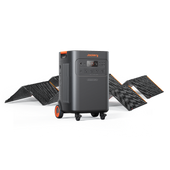











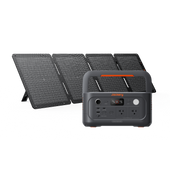



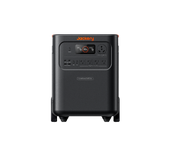
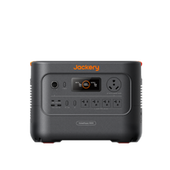





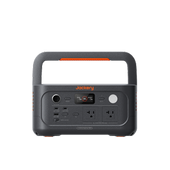





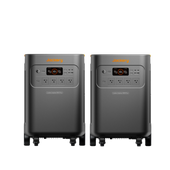
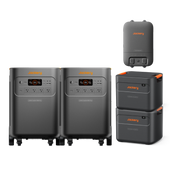





![[Add - on] Jackery Manual Transfer Switch for Explorer 5000 Plus - Jackery](http://www.jackery.com/cdn/shop/files/add-on-jackery-manual-transfer-switch-for-explorer-5000-plus-9017324.png?v=1754016782&width=170)
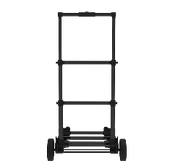
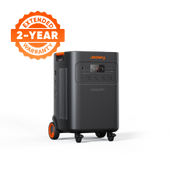
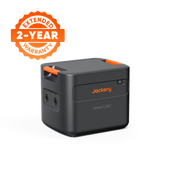
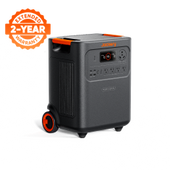
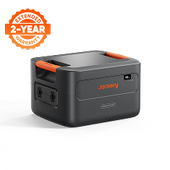
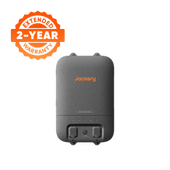



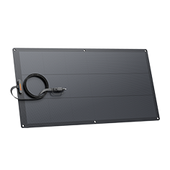
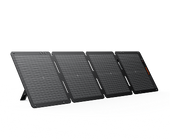




















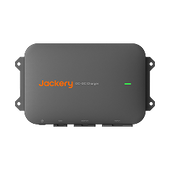




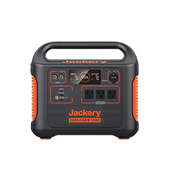






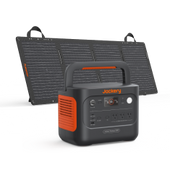
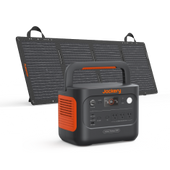






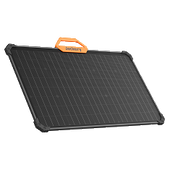












































Leave a comment